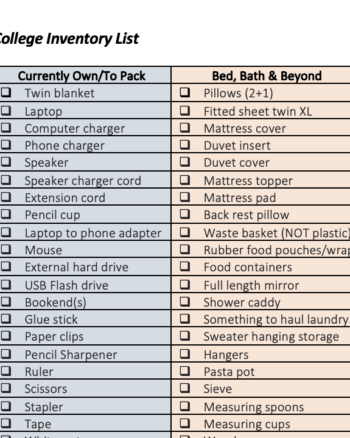
- Be visible in class. Look around the class and see if you can spot the “academically hungry” students. See what it feels like to emulate them in class. Try not to sit where you can hide or get away with not participating. Push yourself to model behavior early on to be pegged as the smart kid.
- Go see the professor during office hours. Realize that they are people too. They’re not untouchable robots. This relationship is two-way. Form a bond by making yourself known outside of class. If the professor’s TA or SI is available, start there.
- Research professors so that you get the one with the good reputation. Sometimes there are two different professors for the same class on your transcript; one is hard and bad the other is easier and more fun. Go talk to people and find out who the best professors are with the best classes and take those. It’s much easier to get excited about going to class when the professor is dynamic and awesome at teaching. Look at reviews at ratemyprofessor.com.
- Really comprehend your classes’ syllabi. Take notes on the metric used to weight assignments. What happens if assignments are late? What expectations does the professor have of their students? Are there any tips for success? Write in the margins. Circle key points. Recap key points in your planner or journal so you don’t have to refer back to the syllabus. Map out the major assignments to understand how there may be overlap of papers and tests in multiple classes at the same time to drip out your schedule for work to make the deadline. Consider going to your professor to see if you can do something earlier like take a test the day before.
- Study two hours for every one hour in class. Carve out time and space to meet the expectation of a set block of study time for each course regardless of whether or not there are assignments due. To fill that time, ask yourself, what did I just learn? Review. What is coming up next? Read ahead. Make an outline or a “coat rack” to make the information that comes in from the professor’s lecture that much easier to absorb. Watch a YouTube video on the subject before class to warm up your brain. Listen to the textbook either before or while you are reading it.
- Set an intentional schedule. Stay on campus from 9 AM to 5 PM five days a week and see if that leaves weekends and evenings totally free. You might be able to get all your studying done during that time and then be able to relax without stress each evening and all weekend. Wouldn’t that be nice?
- Show up at class even if you don’t feel like it, no exceptions! Show up all the time! Just do it. 80% of life is showing up. Set a hard rule for yourself and know your why.
- Take notes by hand. It allows you to remember 25 times better than if you take your notes using a computer.
- Try not to compare to everyone else’s habits. Try to figure out what works for you and put blinders on. For example, how many pages in your textbook can you read in an hour. Just because you read slower than someone else doesn’t mean there’s something wrong with you.
- Outline the steps for typical assignments. How many pages can you read in an hour? How many days does it take to write a five-page paper? What are the steps to writing a paper? What are the steps for reviewing information for a test? Try to make a list and annotate your steps with your guesstimated time and then double it until you are predicting accurately. Remember to keep track to see if you estimated correctly. Part of time management is estimating how long tasks take.
- Show respect to everyone. Hand in homework on time. Work with study partners respectfully. Reply to email or text messages the same day. Do what you say you’re going to do and have integrity.
- Take time to figure out how you study best. Experiment with studying in different locations. Studying in your bed is not the only option. Find some inspiring locations on campus. Go there often. Maybe at the same time of day or to study the same subject. Make learning fun. Come up with ways to reward yourself for your accomplishments. Celebrate your learning. Make a list and check it off. Share your successes with a friend or family member. Be grateful for the opportunity. Perspective can lighten the load. Start small and build momentum. Little things add up when you do them daily.
What does success look like to you? Let me know in the comments.
Printable version HERE.


